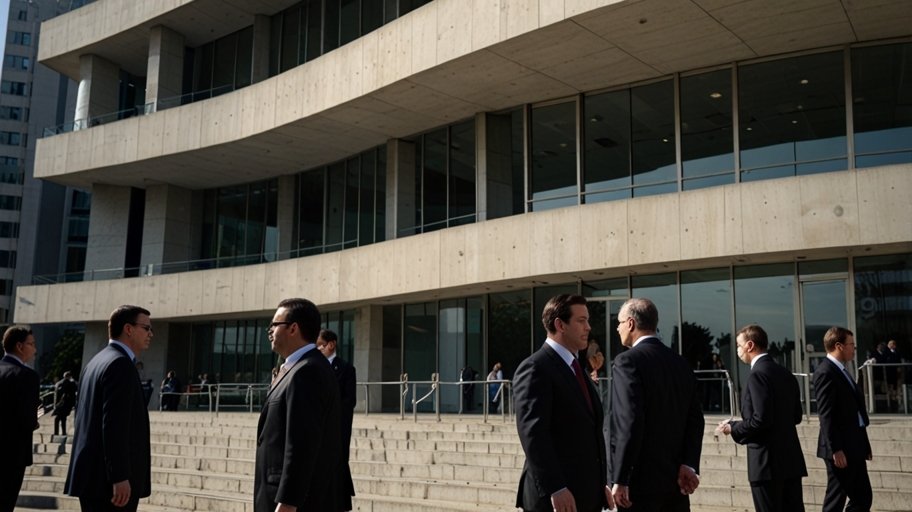Corruption has been one of the most widespread and destabilizing threats that Guatemala has ever faced. A country rich in its cultural heritage but complex and marked by a history of social and political conflict, Guatemala’s fight against corruption undermines democratic processes, erodes public trust, and hinders sustainable development. This article goes into the roots of corruption in Guatemala, its impact on governance, and finally, its implications for stability and growth in both political and economic terms.
Historical Background
Understanding corruption in Guatemala is best approached by looking at the historical context that has formed the political landscape of the country. The history of Guatemala has been characterized by cycles of colonial exploitation, military dictatorships, and civil conflict. The 36-year Guatemalan Civil War ended in 1996 with the signing of peace accords, leaving deep scars on the country. In the process, human rights violations, military repression, and guerrilla warfare created an environment that made the rule of law very weak and public institutions fragile.
The nominal transition to democracy after the civil war was followed by continued structures that supported corruption. Political elites, business interests, and criminal networks entered into symbiotic relationships that made it easier to extract public resources for private gain. The legacy of authoritarianism and conflict left a weak state with fragile institutions that were highly susceptible to corruption.

The Nature of Corruption in Guatemala
Corruption is rampant in Guatemala and takes many forms, including petty bribery and grand corruption at the highest reaches of government. It appears to reach every sector, impacting public administration, the judiciary, law enforcement, and business. Such manifestations include:
Political Corruption: Refers to the abuse of public office for personal advantage through such things as illicit campaign financing, patronage networks, and embezzlement of public funds. Guatemalan politicians have often been blamed for using their position with impunity to enrich themselves or their associates.
Judicial Corruption: Guatemala’s judicial system is notoriously weak and penetrated by criminal groups. Judges and prosecutors often succumb to bribery or blackmail, with a result that lowers the rule of law and generally keeps perpetrators of crimes, even crimes of corruption, outside of criminal accountability.
Administrative Corruption: In routine affairs, common people in Guatemala have to encounter corruption on several aspects, including paying some kind of bribe for accessing government services and negotiation with corrupt officers of law and order. Most of the officials are extorting illegal money for access to a few fundamental services such as providing an identity card or clearing licenses for commercial purposes.
Narco-Corruption: Narcotics trafficking organizations are highly powerful in Guatemala, and the corruption is central to drug trafficking. Narcotics trafficking organizations have been discovered infiltrating not only law enforcement agencies and border security but even the military forces. The generated money from the trade has fostered a cycle of corruption, violence, and impunity.
They feed off each other and interconnect. The weakness of the checks and balances, coupled with an impunity culture, has entrenched the scourge of corruption in Guatemala’s political system.
Consequence of Corruption on Governance
Corruption thus exerts corrosive effects on the governance in Guatemala. It undermines the integrity of democratic institutions, weakens the state’s capacity to provide its citizens with essential services, and worsens inequality. Hereunder are some of the ways in which corruption affected governance in Guatemala:
Erosion of Democracy and the Rule of Law
Corruption in Guatemala weakens democratic governance: It corrupts electoral processes, weakens public institutions. Campaign finance often relies on the favors of business interest or organized crime networks so that power remains in the hand of the corrupt rather than elected. Impunity prevails because the re-election motive compels officials to cover up for those whose help they received at election time rather than addressing fundamental changes.
Judges have to a great extent been an accomplice in this system, whereas criminal groups and high-ranking politicians have so strongly penetrated courts that judges and prosecutors feel themselves intimidated, threatened, or even bribed against corrupt officials with low public trust towards judges who seem to provide justice to nobody.
The result is a shell democracy where formal institutions are formally in place but badly fail to function owing to corruption. Elections are conducted and laws are enacted, and courts are well established, but these apparatus often serve the interests of the elite rather than popular will. The rule of law is nominal at its best, and a thorough culture of impunity leads towards the erosion of democratic governance structures.
Degradation of Public Services and Institutions
Corruption diverts public resources towards less critical sectors such as healthcare, education, and even infrastructure development. When some of the public funds are spirited away for personal gain, the state lack the capacity to deliver its due services to its citizens. For instance, a country like Guatemala has made one of the lowest provisions for public investment in matters of education and healthcare at large in Latin America, partly in the mismanagement and subsequent embezzlement of public funds.

The public corruption sector also leads to inefficiencies in the provision of government services. In such a system, one is required to pay a bribe for one to access basic services, thereby making those with the money better suited to deal with bureaucracy. Social inequality is also heightened through this process and, ultimately, the development of the economy is slowed as businesspersons become less interested in making investments in an unattractive corrupt system.
Corruption also compromises public institutions in the security sector. Police and law enforcement structures are normally under-funded and ill-trained and hence tend to be corrupted by criminal gangs in their operations. This affects the state’s capacity to fight crime and violence, weakening governance further.
Economic Growth and Development Challenges
Corruption has adverse impacts on the economic growth and development of Guatemala. Corruption hinders innovation and entrepreneurship by distorting market competition and public investment in the crucial sectors. For the most businesses in Guatemala, high transaction costs abound, as firms have to pay bribes for entering a contract, getting licenses or even government services. It thus presents an unlevel playing field that is likely to favor those with access to “right people” thereby making it impossible for honest businesses to achieve fair play.
Corruption also generates negative effects on FDI. Investors fear that doing business in sectors of corruption will raise the levels of risks associated with their operations in the country. Guatemala has a huge potential in agriculture, tourism and manufacturing sectors, among other sectors. However, insignificant investment in the country involves foreign investors in growing the economy due to increased concern in corruption and political instability in the country.
More than this, corruption translates into the misallocation of public resources, which usually underdevelopes roads, ports, and energy facilities. This severely limits the country’s integration into global supply chains and economic development, mainly in rural regions where poverty rates are highest.
Analysis of Social Inequality
It also so happens that corruption impacts the most vulnerable populations of Guatemala, such as indigenous communities, women, and rural poor populations, who have little access to political power and financial resources. Corruption in public services such as health and education is particularly harmful because these groups depend more on state-provided services.
Corruption also sustains an inequality regime by amassing wealth and power in the hands of a few elites. The powerful in politics and money can use this to get themselves better treatment. Marginalized communities are denied access to the same opportunities. This serves to deepen social divisions and contribute to cycles of poverty and exclusion.
Role of Civil Society and International Actors
Despite the challenges it entails, civil society and international notable actors have acted against corruption in Guatemala. Such efforts were the International Commission Against Impunity in Guatemala, established in 2007 by an agreement between the United Nations and the government of Guatemala, which investigated and prosecuted corruption cases against members of the highest echelons of society.
It has been through the partnership between CICIG and the Guatemalan Public Ministry that networks of corruption, linking politics, business, and organized crime, have been uncovered. Investigations led by the commission have also prompted prosecutions of some high-profile personalities, including former President Otto Pérez Molina, who was made to resign in 2015 in a scandal of corruption exposed by CICIG.
In fact, its mandate was not renewed in 2019 due to the pressure that political elites gave to their members, threatened by the efforts of the anti-corruption commission. Its closure showed how hard the battle against corruption is in Guatemala and highlighted the powerful sectors’ resistance to accountability and transparency.
Civil society organizations and human rights groups, followed by the media, were also instrumental in exposing corruption while pushing for reform. Such forces have organized protests, mounted their own investigations, and pressured the government to go after corrupt officials. However, these efforts are often blunted, and the threats and intimidation and violence to which both activists and journalists are subjected inside Guatemala are especially severe.
The fight against corruption in Guatemala remains a very long way from successful completion, and the road ahead is strewn with challenges. Political elites and criminal networks still wield much power, and efforts to alter the system often face substantial opposition in fierce ways. Yet there is still room for improvement.
Strengthening judicial power within Guatemala is among the needed reforms. Protection of judges and judges prosecutors working against corrupt officials is essential to restore public confidence in rule of law. More than legislation, this requires protection to judges who are committed to work against corrupt officials.
The other critical area for reform involves campaign finance laws and electoral processes. The establishment of a transparent and accountable political system will require the reduction of illicit money influence on politics. International organizations and civil society can play an important role in advocating for these reforms and their monitoring.
In fighting corruption, efforts to reduce inequalities and exclusions also need to be eradicated in Guatemala. This implies poor people benefiting from public services and receiving political representation to increase social equity and inclusiveness.

Conclusion
At the heart of corruption issues in Guatemala is the most entrenched problem of corruption threatening the backbone of governance, ‘public institutional weakness,’ and retardation of economic development. It is a historical phenomenon that affects everything, including democratic processes and social equity. Efforts by civil society and international actors to fight against corruption give hope for the future of reform. The road will be long and arduous, but with persistent pressure and commitment, it is feasible to build a more open and accountable system of governance in Guatemala.
